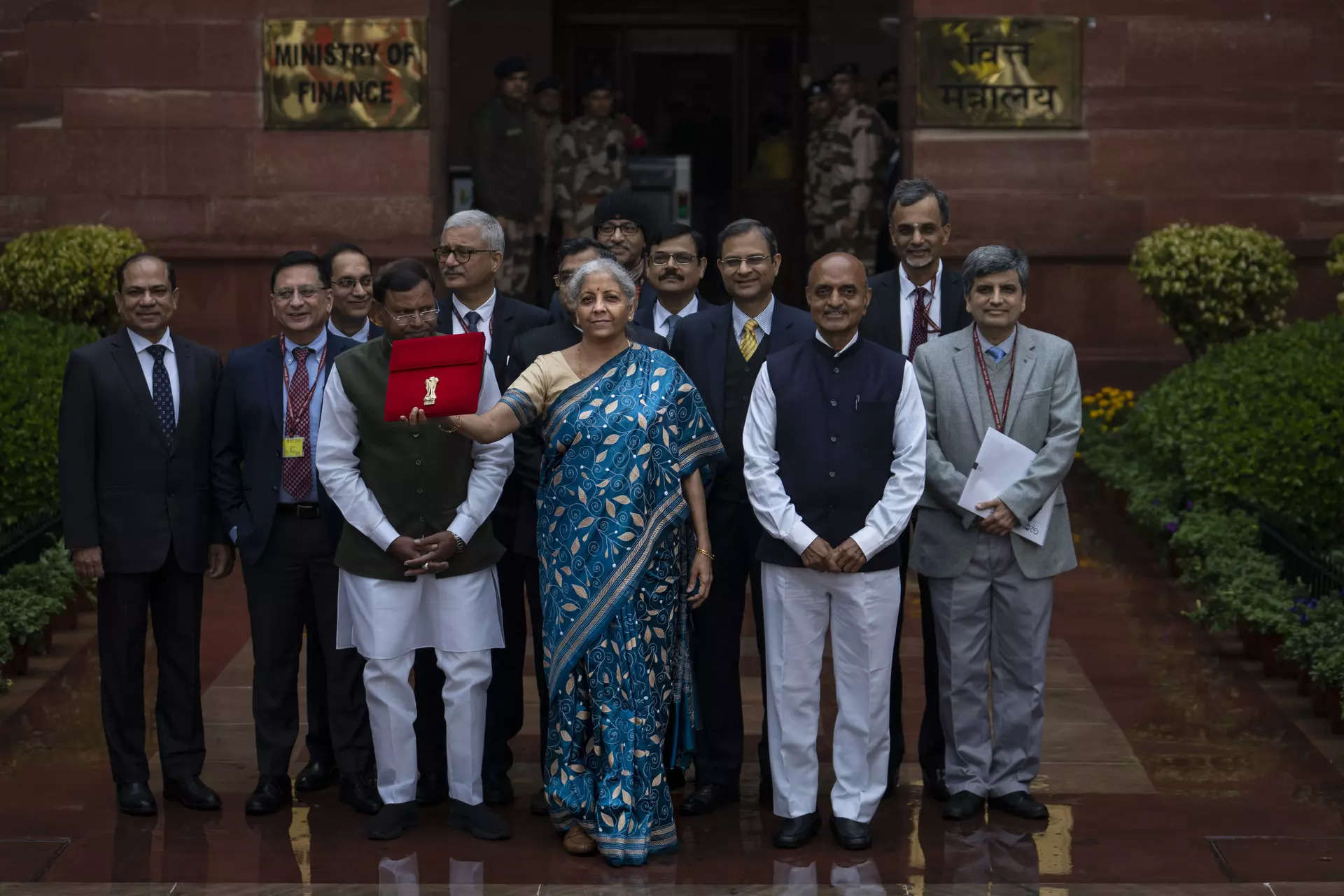
NEW DELHI: As anticipated, the Interim Budget 2024 made no big-bang announcements for the Indian real estate industry. Finance minister Nirmala Sitharaman made few announcements focussed towards affordable housing, middle-class housing, rooftop solarization and transit oriented development.
Despite the challenges due to COVID, implementation of Pradhan Mantri Awas Yojana (Grameen) continued and we are close to achieving the target of three crore houses. Two crore more houses will be taken up in the next five years to meet the requirement arising from increase in the number of families.
Through rooftop solarization, one crore households will be enabled to obtain up to 300 units free electricity every month.
Our government will launch a scheme to help deserving sections of the middle class “living in rented houses, or slums, or chawls and unauthorized colonies” to buy or build their own houses, said finance minister.
We have a fast-expanding middle class and rapid urbanization is taking place. Metro Rail and NaMo Bharat can be the catalyst for the required urban transformation. Expansion of these systems will be supported in large cities focusing on transit-oriented development, said Sitharaman.
Here is how the real estate industry reacted to the Interim Budget 2024:
Ankit Hakhu, director, CRISIL Ratings said, “The plan for supporting solar rooftops in 1 crore households augurs well for developers and module manufacturers as it will bump up rooftop demand. It will also be attractive for households given the potential to save electricity cost of Rs 15-18,000 per annum per household. That said, the quantum and mechanism of disbursements and timelines around the support will determine the pace of progress of the scheme and will bear watching.”
Ashoo Gupta, Partner, Shardul Amarchand Mangaldas & Co said, “The housing for middle class scheme is a commendable initiative that empowers the middle class to fulfill their dream of home ownership. This step is anticipated to boost economic growth, providing a sense of stability and prosperity within the middle-income segment.”
“While acknowledging the commendable strides, we believe that further catalysing growth in the real estate sector could have been facilitated through measures such as a reduction in customs duties or GST, enabling developers to expedite the completion of under-construction properties and boost housing supply,” said Venkatesh Gopalakrishnan, MD & CEO, Shapoorji Pallonji Real Estate.
G Hari Babu, national president, NAREDCO said, “The reiteration of a new scheme for the urban middle class population, also would boost confidence of both the common man and the real estate sector. We now look forward for a clear roadmap of this scheme.”
Murali Malayappan, chairman and managing director, Shriram Properties said, “The aim to reduce/contain the fiscal deficit to 4.5% by 2025-2026 is good. The plan to build 2 crore more houses and launch a new plan for the middle class will be a booster for housing development and depict the concern of the government towards providing housing for all. Capex of Rs. 11.1 lakh crore in 2025 will be the biggest and most welcome. Hopefully, the government shall revisit the areas like affordable housing and tax provisions, particularly the Individual Income Tax which directly impacts areas like housing development and overall economic development, while submitting the regular budget.
Sandeep Runwal, president, NAREDCO Maharashtra said, “The announcement of a new housing scheme for the middle class is particularly noteworthy. This initiative seems to be aimed at addressing the housing needs of those living in substandard conditions like slums and chawls or those burdened by rent. By facilitating home ownership, the government is not only looking to improve living standards but also to stimulate the real estate sector and associated industries.”
“The vision of ‘Housing for all’ gains momentum with the announcement of a new housing scheme for the middle class and plans to build 2 crore houses in the next 5 years under the rural housing plan. Initiatives like rooftop solarisation are expected to reduce electricity bills, encouraging middle-class investment in affordable housing,” said Domnic Romell, president, CREDAI-MCHI.
Ashish Puravankara, managing director, Puravankara said, “The financial prudence being displayed in bringing down the fiscal deficit to an estimated 5.1% is fantastic. It shows that the government is committed to strengthening the economy, controlling inflation and, therefore, interest costs while maintaining growth with investments in infrastructure.”
Anuj Puri, chairman, ANAROCK Group said, “As anticipated, the Interim Budget 2024 made no big-bang announcements, but it continued its focus on infrastructure upgrades and building connectivity across the country. This will benefit real estate growth in not just the top cities but in Tier 2 & 3 cities across the country. While the interim budget didn’t directly address the real estate sector’s key demands, the upcoming Union Budget might hold more concrete measures addressing industry concerns and potentially impacting market trends.”









